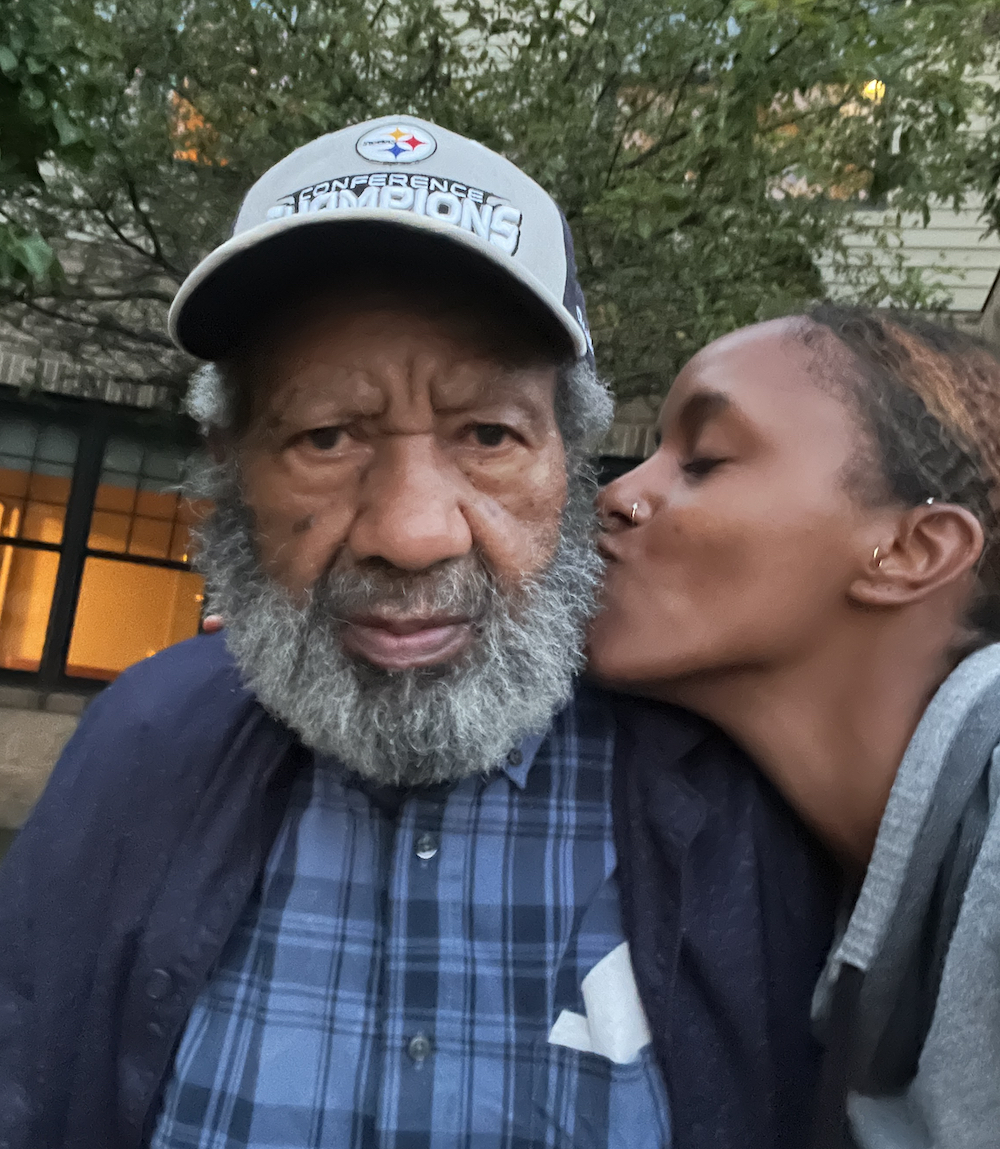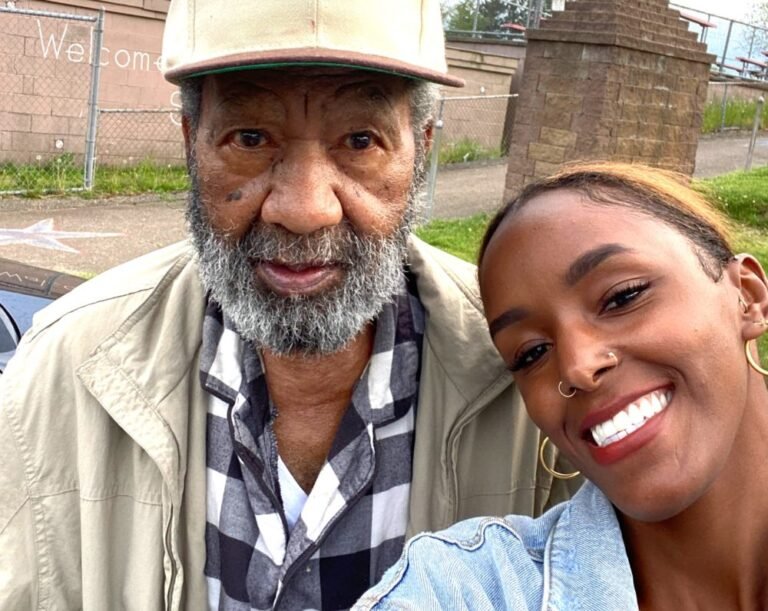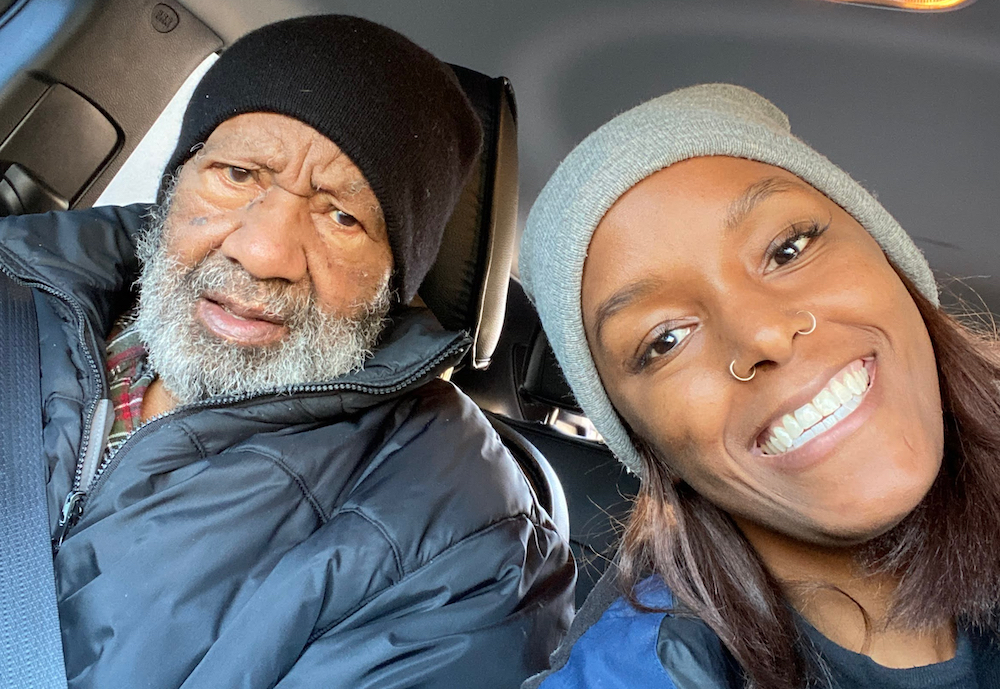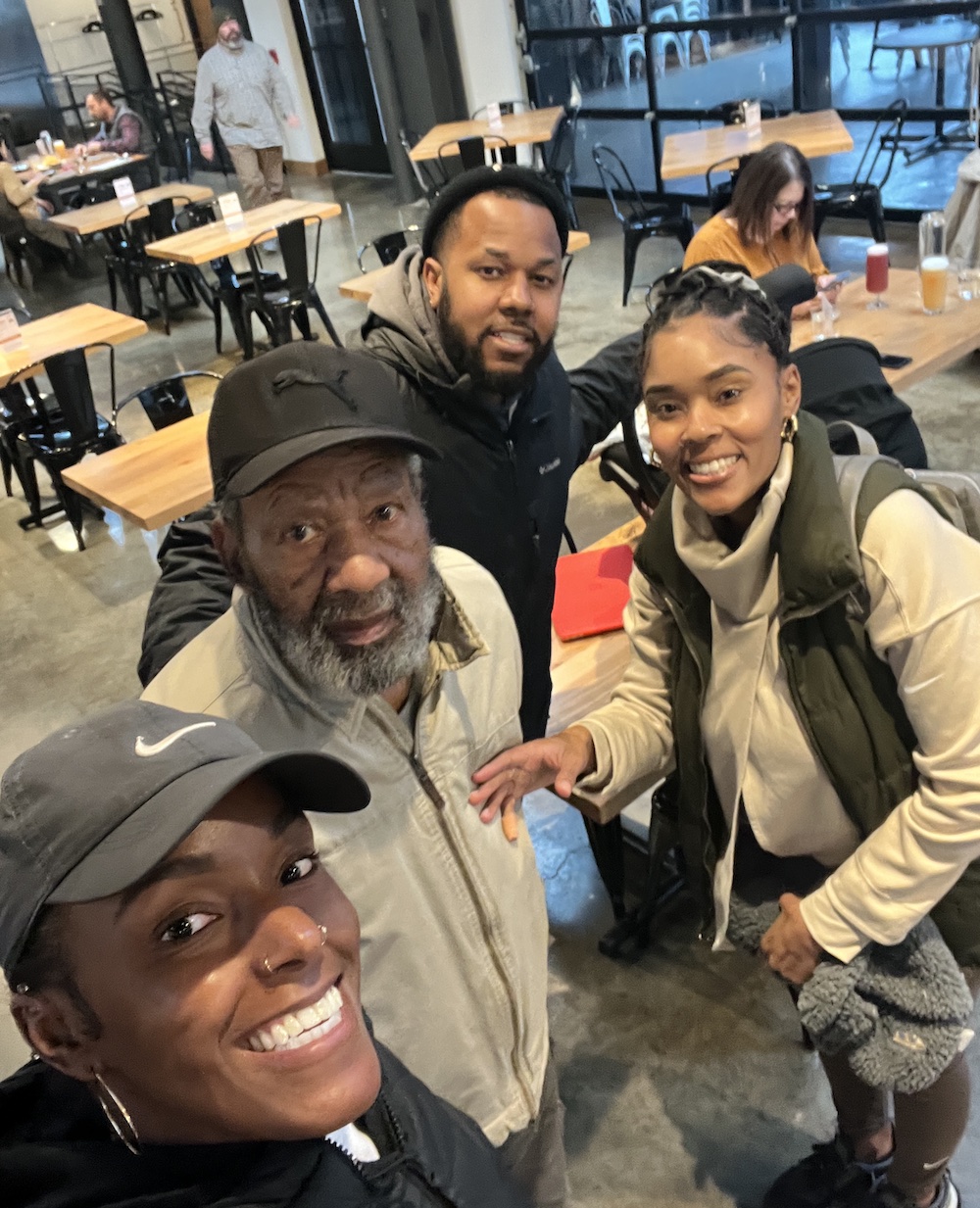All photos courtesy of Brittany Cheeks.
It’s 5 o’clock in the morning and I hear footsteps quietly walking down the hallway.
“Is he going to the bathroom,” I wonder from the warmth of my bed. “Or is he headed to the kitchen this time?”
I want to kick my partner and tell him it’s his turn to put him back to bed. But I know it goes better if I do it. So, I muster the strength to get up, pull my robe on and go, all the while praying that he’ll lay down and go back to sleep without putting up a fight.
I find him in the kitchen.
“Grandad,” I say, “what are you doing? It’s not time to get up yet. Come with me and let’s get you back to bed.”
This is an every-morning occurrence, like clockwork. Instead of child-proofing the house, I’ve dementia-proofed it for my 89-year-old grandfather. After my grandmother died this past January, I moved in to care for him so he could remain home and avoid a nursing facility.

It works because I work from home with flexible hours. But I’ve completely paused my 34-year-old life to care for him indefinitely. Let’s be clear: That’s good with me, because Grandad has literally been a father to me and to my four siblings.
My parents divorced in my early teen years and my mother worked hard to make sure our lifestyle remained the same, which meant working long hours. My grandfather stepped in as extra support — giving us money, driving us around, and babysitting so that my mom could work the overnight shift and be home with us after school.
So when the time came to decide what the next chapter of Grandad’s life would look like, there was no hesitation. I would step up. However, even with our history and my love for him, it isn’t always easy.
If you’re raising kids or taking care of older relatives (or both), then you know caregiving is a labor of love. I fully understand what that phrase means now. And I understand that just because it’s your child, parent, grandparent, sibling or any other loved one, that doesn’t mean it’s any less challenging. It can be frustrating, inconvenient, and exhausting. But we do it, nonetheless.
All the smiles, laughs and memories that my grandfather and I share outweigh the bad days. I know this is a chapter in my life story that I get to share with him. It will eventually end, and the day will come when I’ll cry and beg to have one more day with him — a good or bad one.
I encourage you to hang on to that on those days when you want to shut down. Remember, it’s not forever. Call it out and acknowledge your feelings. Give yourself a moment to go into the bathroom, basement, the car — wherever you can get a few minutes alone. Close your eyes, take some extended breaths, and tell yourself, “It’s not forever.”
Acknowledging the challenge does not make you a bad person or undeserving of the role you play. It means you’re human and need a quick break. So, take that break and return a little better.
Even though he doesn’t always remember me, my grandfather and I have become a lot closer within this past year. The way he asks for me when I’m not around means the world to me, and when I’m away from him I find myself wondering what he’s doing. I’m so grateful for our relationship and for the time we have together.
If your children still have their grandparents, you can encourage that relationship to blossom. Here are some of the steps I’d recommend:
1. A child can ask their grandparents about the things they used to do when they were the age that the grandchild is now. What were their hobbies? If possible, the grandparent and grandchild can try doing one or more of those hobbies together.
2. Encourage the grandchild and grandparent to create a new tradition just for them.
3. Help your child host a mock interview and record it. Create a variety of questions to ask. This can be anything from family history to “what was your first car?” or “how old were you when you lost your first tooth?” or “tell me about the first person you dated.”
4. Depending on the child’s age, have a special night out with grandparents or a game night at home just grandparents and kids.
5. Think about something you would hope to one day do with your future grandkids, then encourage your child and your parent to do that thing together now.
These activities can help children feel more connected to their grandparents, and can also give you a bit of a break as a caregiver.
If you are a caregiver for your own elderly parent, you know a time will come when your care will no longer be needed. So take care of yourself along the way and as best you can, try to be present for every moment. It truly is a gift to be around the people you love right now — that’s why it’s called the present!






One Response
Hi my loved one! I wish to say that this post is amazing, nice written and include approximately all vital infos. I’d like to peer more posts like this.